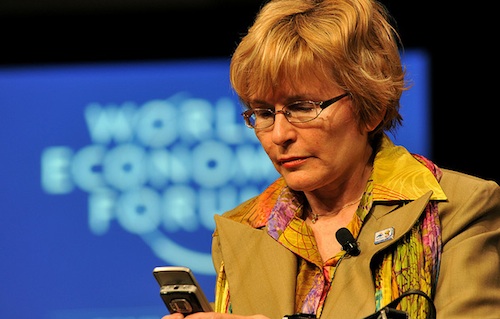
A proposed public broadcasting law will place the SABC under the control of the communications minister and mark a return to the days when the ruling party determined what was aired on television and radio, Democratic Alliance leader Helen Zille said on Friday.
“It is the final plank in the ANC’s plan, hatched at Polokwane, to ensure that the SABC reflects the values of the ANC,” Zille wrote in her weekly newsletter.
She said the Public Service Broadcasting Bill would “put the SABC under the de jure control of the minister of communications”, currently Siphiwe Nyanda, by giving him authority over its finances and the power to issue directives to the board.
He will also have wide powers to influence appointments to the board.
“All this means is that the SABC will effectively be accountable to the minister, instead of to parliament and the SABC board as it is currently.”
Zille said the DA would oppose the bill, which is expected to be tabled in parliament soon, in the same manner it was trying to stop the Protection of Information Bill becoming law.
“We will fight this legislation with all we have. We cannot allow the ANC to take us back to the dark days when everything you saw on television and heard on the radio was decided by the ruling party. Those were the bad old days.”
Zille criticised SABC board chairman Ben Ngubane, for failing to distance himself from a statement by ANC Youth League leader Julius Malema suggesting that the public broadcaster’s independence was compromised.
She quoted Malema as telling the same press conference he told a BBC reporter to leave: “We would be worried if the SABC doesn’t come, but the rest of you, to be honest, we really don’t care. The SABC is our own, but the rest, it’s okay whether you come or don’t come.”
Zille said the remark “was the clearest indication yet that the SABC is an ANC mouthpiece”.
She said she wrote to Ngubane and asked that he repudiate Malema. She received no response and repeated the request at a later meeting but he “point-blank refused”. — Sapa
- Image credit: World Economic Forum
- Subscribe to our free daily newsletter
- Follow us on Twitter or on Facebook




